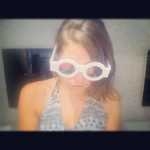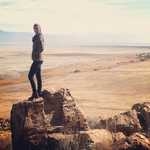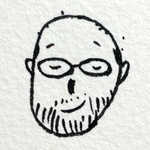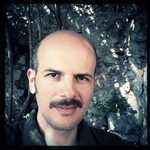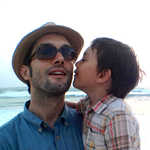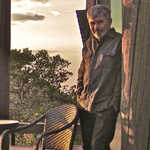

Listening to my grandmother tell stories about her mother. Thinking about family and storytelling and relationships.
July 17th, 2013, 11pm
It was 29.4°C with few clouds. The breeze was light.
My grandmother is 89 years old. She’s a survivor of the Holocaust. And she is one of the greatest storytellers you’ll ever meet. She remembers details of events that took place decades ago like they were yesterday. What the weather was like. What she was wearing. Who said what to whom. She remembers it all.
Recently, my family published a book that my great-grandfather, my grandma’s father, another storyteller (dare I say, the progenitor of her storytelling prowess) wrote about his experience in Auschwitz. My grandmother, who to this day speaks about her father as if she were still the young child whom he used to tuck into bed on cold, Polish nights with a blanket he had warmed on their wood-burning oven, translated his words from Yiddish. You can feel their closeness in her translation, the prose reading almost as if she herself wrote the original. (Shameless plug: The book, a culmination of the work of four generations of my family, is available at skytingedred.com).
But my grandmother didn’t talk about her mother as much. The two of them spent the entire war together. After her father was arrested by the Nazis in 1942, my grandma, her brother and her mother were left without a protector. In 1944, when all the Jews who had managed to still be alive in their hometown of Radom, were shipped to Auschwitz, the women were separated from the men and my grandmother and great-grandmother were each other’s lifelines. Still, the story we most often heard about my great-grandmother was that she favored her son, David, while my great-grandfather favored my grandmother, his little princess, for sure.
So a few weeks ago, several of my family members sat down to record my grandma talking specifically about her mother. What was their relationship like? How did it change once her father was taken away? How was she affected when her mother, after surviving 6 years of Nazi terror, died just a year after liberation?
I wasn’t there for the interview, which took place in Minneapolis. And I didn’t experience the events she describes, which happened several decades ago in Europe. But sitting in my apartment and listening to my grandmother tell these stories, transmit them, in fact, to her future generations, I can’t help but feel like I am a part of them.
Other moments in Washington
-
Winter, airbnb, artist
What are we all doing here anyway?
in Washington, United States -
Design, DIY
basket ball hooooooooooooooooooooop
in Washington, United States -
Thoughts on refugees
in Washington, United States -
water, Drought, California
It doesn't stop raining outside California
in Washington, United States -
Liberty and freedom is what America stands for. We have a statue that towers above liberty island. The token of friendship France has bestowed upon us.
in Washington, United States -
Sports, tennis
Indoor Tennis - The Kastles
in Washington, United States -
Leelou, porch napping before the inevitable rainstorm.
in Washington, United States -
Hearts on strings
in Washington, United States -
sunset, Sun, murals
Back in September, when I first moved to Washington - H street festival
in Washington, United States
